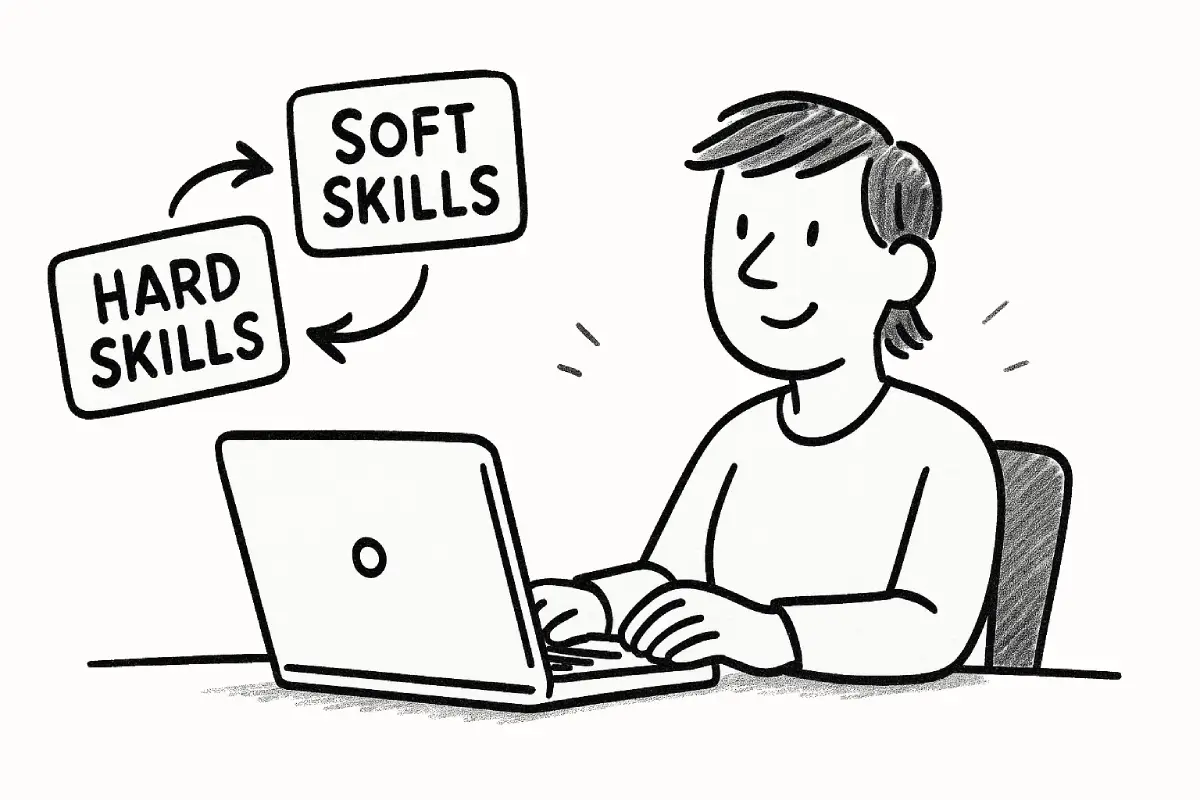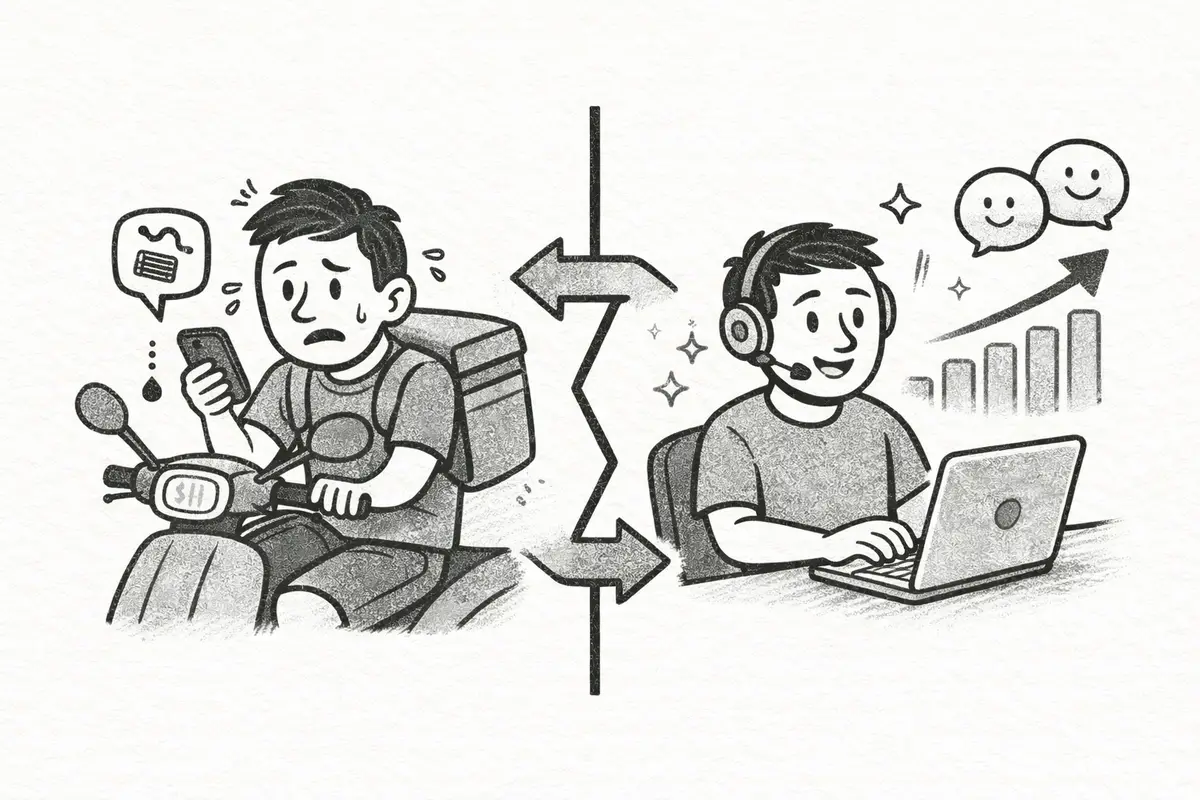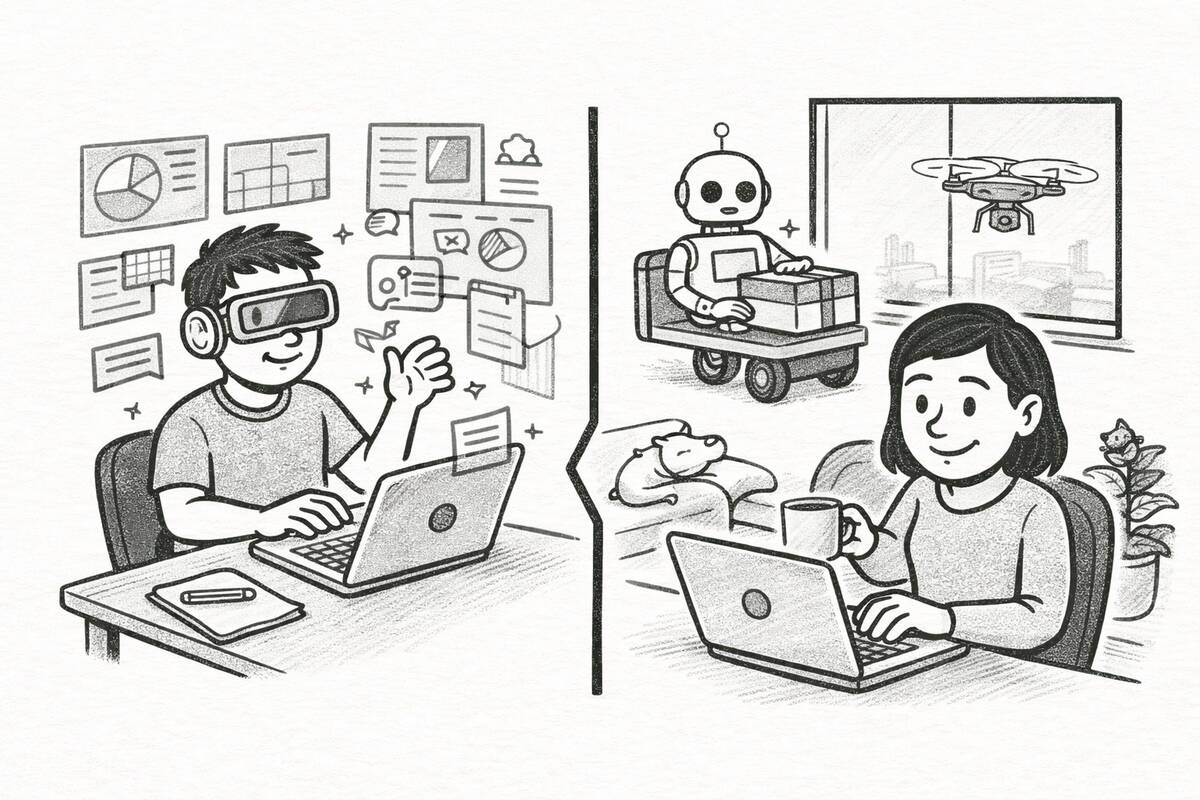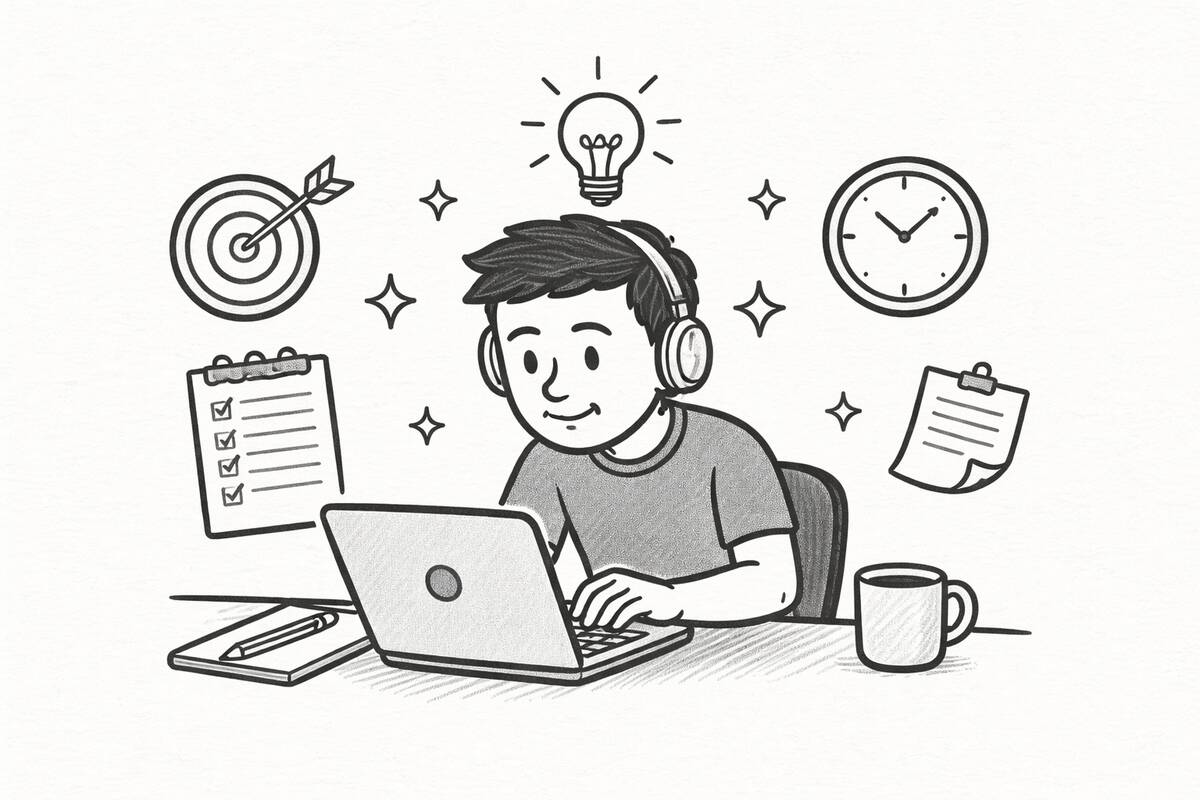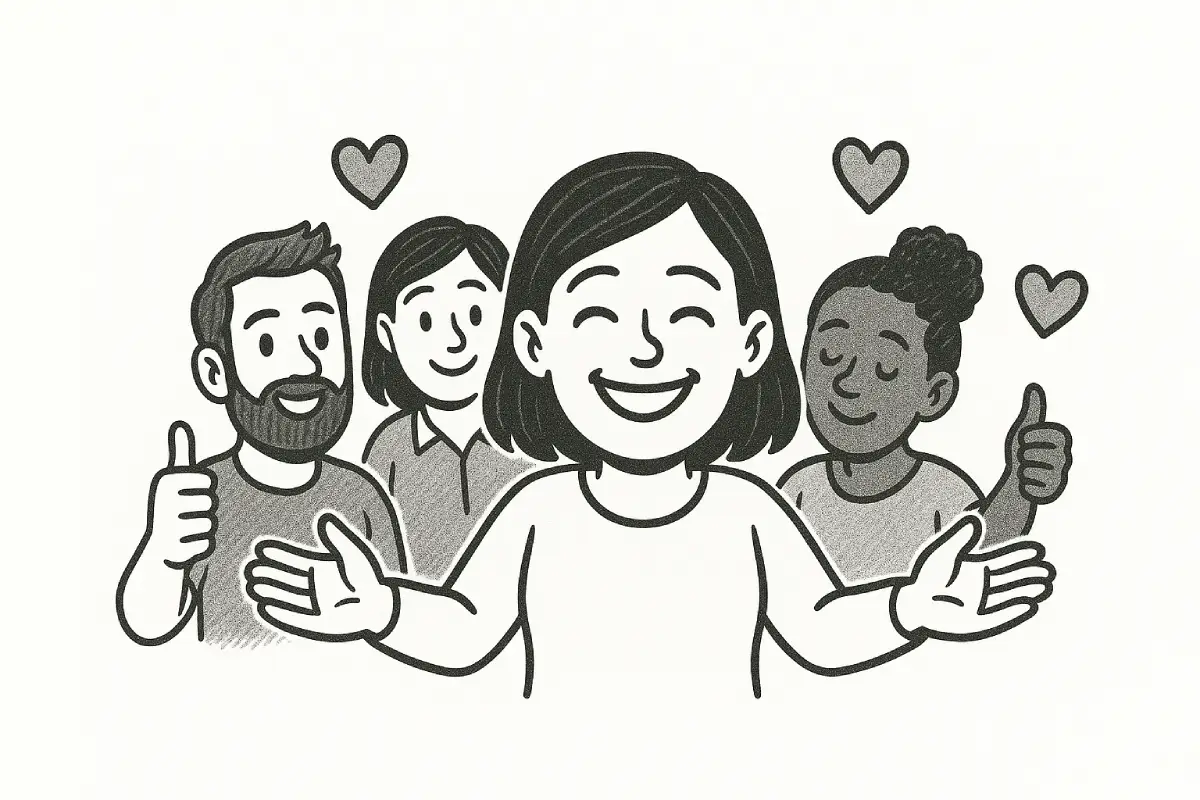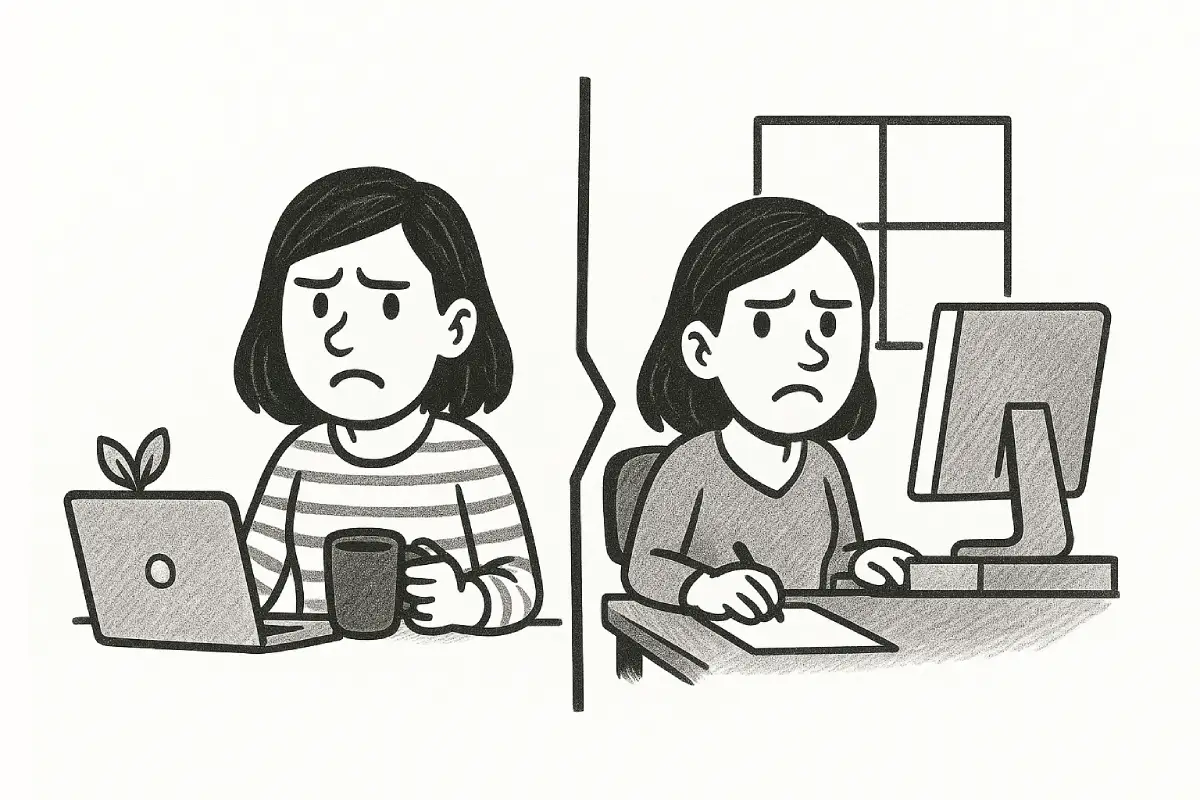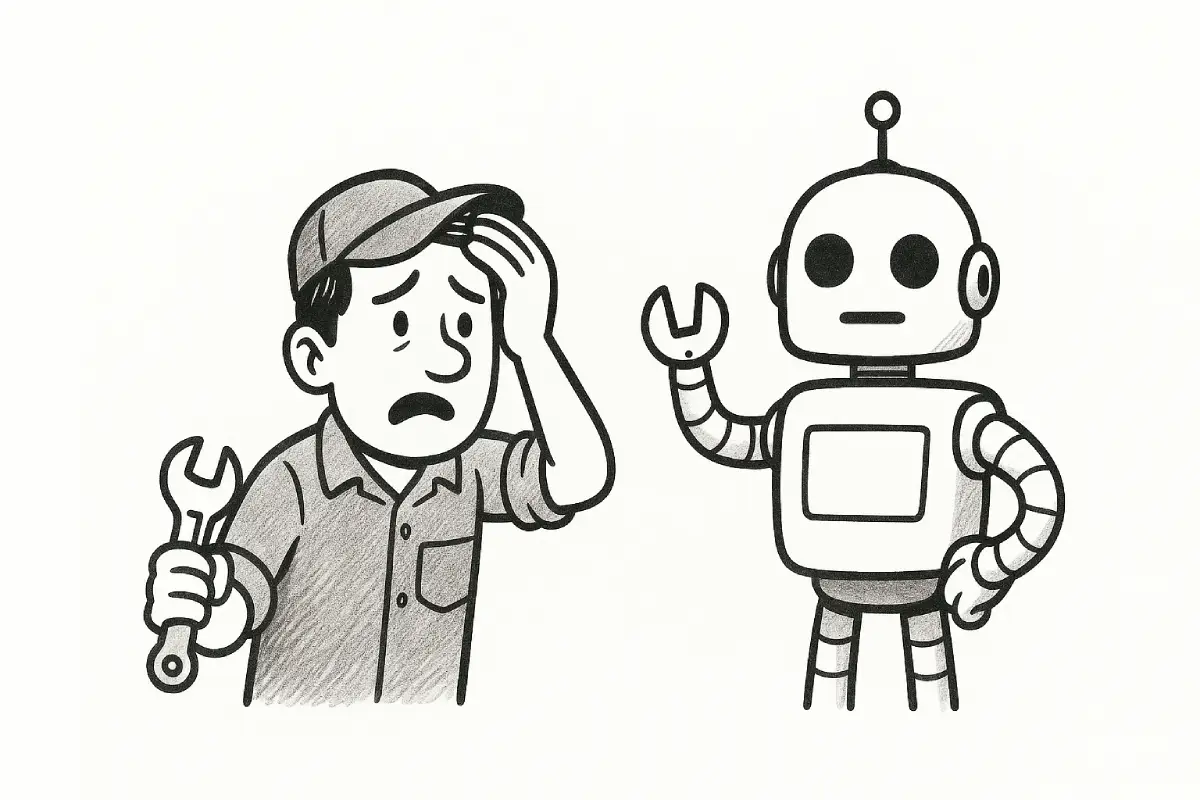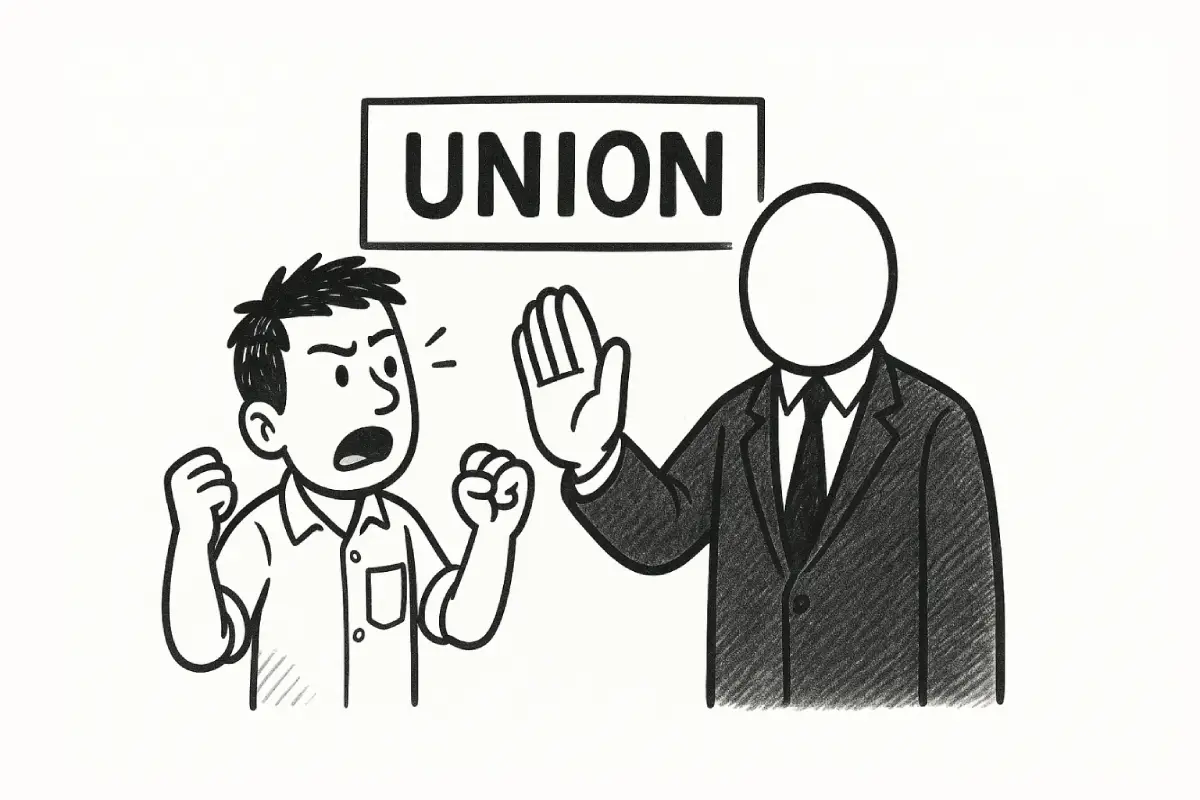Let’s talk about Dave. Every office has a Dave. Our Dave was a wizard, a true code-magician. He could bend Python to his will, make databases sing, and solve algorithmic puzzles in the time it took the rest of us to find the right Zoom link. On paper, Dave was a 10-out-of-10 hire. A rockstar. An asset you’d build a team around.
But Dave couldn’t explain what he’d built to a client to save his life. He couldn’t handle constructive feedback without a week-long sulk. He saw collaboration as a personal attack on his genius. Meetings with Dave were a minefield of sighs, eye-rolls, and condescending non-answers. He was brilliant, yes. But he was also a black hole of morale. And eventually, despite his prodigious technical talent, Dave was let go.
Why? Because the math just didn’t work. His individual brilliance was cancelled out—and then some—by the friction he created. He was a powerful engine, but he was leaking oil all over the rest of the machinery.
We’ve spent the last twenty years obsessed with hard skills. We built an entire culture around them. Coding bootcamps, data science certifications, technical degrees—these became the golden tickets. We convinced ourselves that the future belonged to the person who could speak the language of the machine. And for a while, that was probably true. But a funny thing is happening on the way to the future. The machines are getting so good at speaking their own language that they donot need us to translate anymore.
And in this new world, the Daves are a liability. The people who can manage the Daves? The people who can translate Dave’s brilliance into a client’s vision? The ones who can build a bridge between the tech and the messy, unpredictable world of human need? They’re about to become the most valuable players in the game. By 2026, it won’t even be a contest.
The Great Commoditization
Think about any hard skill you can name. Graphic design. Financial modeling. Market research. Legal document review. Coding. A few years ago, proficiency in these areas was a significant moat, a defensible career advantage. It took years of study and practice to get good. Now? An AI can do a pretty decent first draft of almost all of it in about 30 seconds.
This isn’t to say hard skills are worthless. That’s a lazy, simplistic take. You still need to know enough to know what to ask for. You need the expertise to spot when the AI is confidently wrong—something it does with alarming frequency. But the role of the human is shifting, and shifting fast. It’s moving from creator to curator. From doer to director.
The AI is your new, incredibly fast, slightly weird, and utterly tireless intern. It can do the grunt work. It can assemble the components. But it can’t tell you why. It doesn’t have taste. It doesn’t have strategic vision. It can’t read the room.
A friend who runs a marketing agency told me something that’s stuck with me. He said, “I have access to AI tools that can generate a hundred ad campaigns in an hour. The problem isn’t a lack of content. The problem is a lack of judgment. I need people who can look at those hundred options and know which one will actually make a real person feel something.”
That’s it, right there. The value is no longer in the production of the raw material; it’s in the wisdom of its application. And wisdom is a soft skill.
So, What Are We Actually Talking About?
“Soft skills” is a terrible, squishy term. It sounds like a consolation prize for people who couldn’t learn to code. Let’s call it something else. Let’s call it human-centric intelligence. It’s the suite of abilities that, for now, remain stubbornly, beautifully human.
The Art of the Unspoken
This is Emotional Intelligence (EQ), but it’s more than just being “nice.” It’s the ability to walk into a tense negotiation and sense the hidden agendas. It’s knowing that your boss’s one-word email isn’t a sign of anger, but a sign of being overwhelmed. It’s being able to give critical feedback in a way that motivates, rather than demoralizes.
An AI can analyze sentiment based on keywords, sure. But it can’t understand the complex dance of ego, insecurity, ambition, and history that defines every single human interaction in a workplace. It can’t tell the difference between sarcastic agreement and genuine buy-in. A human with high EQ can. They are the social lubricant that keeps the gears of a team from grinding to a halt. They are the Dave-whisperers.
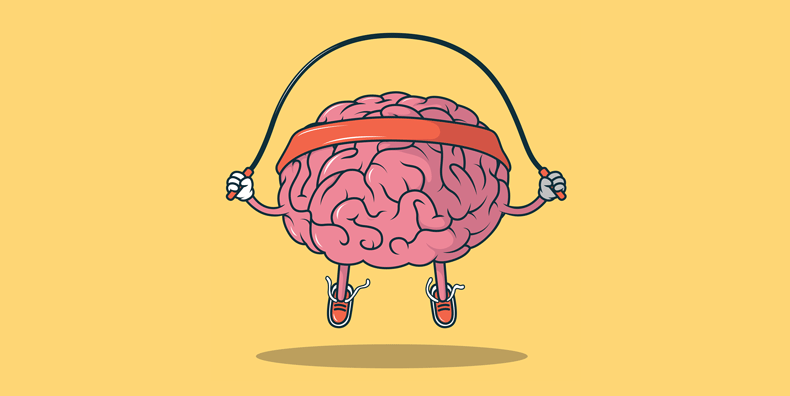
Mental Acrobatics
I’m talking about cognitive flexibility. The world is too weird and changes too fast for rigid, five-year plans anymore. Remember when everyone was pivoting to video? And then to podcasts? And now to AI-powered everything?
The most valuable employees will be the ones who don’t just tolerate change, but who get a little bit of a thrill from it. They see a new technology not as a threat to their job, but as a new tool to play with. They can hold two opposing ideas in their head at the same time. They can abandon a cherished belief when presented with new evidence. This isn’t something you learn in a textbook. It’s a disposition, a way of moving through the world with curiosity instead of fear. It is the skill of being unstuck.
Persuasion, Influence, and Storytelling
You can have the best idea in the world. You can have the data to back it up. But if you can’t get anyone to listen, if you can’t build a coalition, if you can’t wrap your idea in a story that resonates with people on an emotional level… your idea will die on the vine.
This is perhaps the most fundamental human skill. We are storytelling apes. It’s how we organize reality. An AI can give you a list of bullet points. A human can give you a narrative. They can frame a project not as a series of tasks, but as a quest. They can persuade a skeptical executive not with more data, but with a compelling vision of a possible future. In a world drowning in information, clarity and inspiration are the ultimate currency. The person who can craft the story controls the game.
What This Means for Your Career in 2026
If I’m right about this—and I’m betting my career that I am—then the way we think about work, hiring, and career progression needs a radical overhaul.
The resume as we know it is on its deathbed. A list of hard skills and past job titles is becoming a poor signal of future success. Who cares if you were a “Senior Java Developer” for five years when an AI can now handle 80% of that workload? What I want to know is: Did you mentor junior developers? Did you lead a difficult cross-functional project? Did you convince a skeptical product team to change direction? Did you resolve a conflict between two warring departments?
We’re going to see a shift toward “portfolio-based” hiring, even for non-creative roles. Instead of just a resume, you’ll be expected to show your work. Not just the final product, but the story behind it. “Here’s the problem we faced. Here’s how I got the team on board. Here’s the political challenge we had to navigate. Here’s how we adapted when our initial plan fell apart.” That’s infinitely more valuable than a bullet point that says “Managed a budget of $500k.”
Interviews will change, too. Fewer brain-teasers and technical gotchas. More situational judgment tests. More collaborative, real-world problem-solving sessions. “Here’s a messy, ambiguous scenario. The data is incomplete, and two of your key stakeholders hate each other. Walk us through how you’d handle it.” The right answer isn’t a specific solution; it’s the process. How do you think? How do you communicate? How do you handle pressure? How do you bring people along?
The hard skills will become the table stakes the price of admission. They’re what get your resume past the robot screener (which, ironically, will still exist). But the human-centric skills are what will get you the offer. They are the differentiator. They are the thing that can’t be automated away.
We are at an inflection point. For decades, we’ve been rewarded for acting more like machines—for being efficient, logical, and dispassionate. Now, our greatest professional asset is to be un-machine-like. To be messy, empathetic, intuitive, and persuasive. To be, in a word, human. The Daves of the world had their moment. That moment is ending. The future belongs to the people who can clean up their oil slicks.
You might also like: Is the Gig Economy Dying or Evolving?
